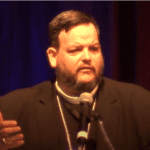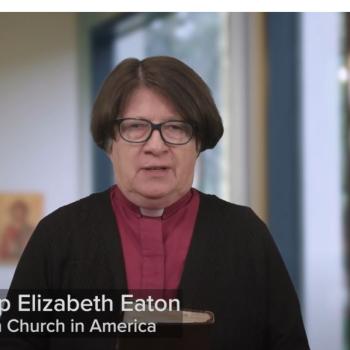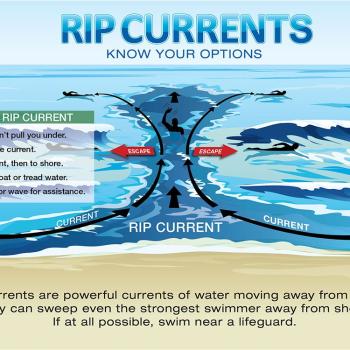ELCA Presiding Bishop Elizabeth Eaton released a three-part Tweet on May 11 updating the status of the Listening Panel reviewing the actions of Sierra Pacific Synod Bishop Megan Rohrer. As we await her decision on the matter at the end of May, Rohrer continues to double down on abusing their power. In this guest post, my colleague, Rev. Pamela Griffith Pond, explains why Rohrer’s latest move to create a Wellness & Wholeness Advisory Team that will conduct formal “wellness checks” is highly problematic.
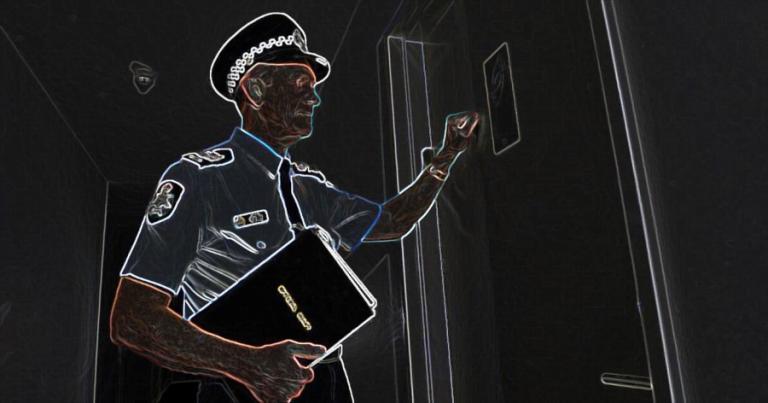
Rev. Pamela Griffith Pond is an intentional interim ELCA pastor who served San Francisco Bay Area congregations in transition in the Sierra Pacific Synod for 25 years. She recently moved to Southwestern Washington. Her passion is for facilitating transformation among congregations and individuals, and helping people understand scripture in new, life-giving ways as they navigate the waters of transition. She also serves on the Clergy Emergency League Steering Committee.
Bishop Megan Rohrer Doubles Down on Abuse of Power with “Wellness Checks”
Guest Post by Rev. Pamela Griffith Pond
On May 2, 2022, Sierra Pacific Synod’s bishop, Rev. Megan Rohrer, posted that the Synod Council has created a “Wellness & Wholeness Advisory Team to support roster leaders” and “to advise the bishop on matters related to misconduct or formal wellness checks of pastors and deacons.” The Team will conduct “formal wellness checks” on rostered leaders ostensibly to provide “support” for the sake of “transparency.” However, such an effort sets a dangerous precedent for the potential abuse of power by a synod bishop and should be a concern to all ELCA clergy.
What is a “Wellness Check”?
Wellness checks are in-person visits from one or more law enforcement officers when a friend, neighbor, or family member raises concerns about an individual’s health or safety. For example, if the person doesn’t answer the phone or has not been seen for several days, a concerned person may call the police to initiate a wellness check.
However, wellness checks are sometimes used in ways that have nothing to do with a person’s welfare. Instead, they can be used to document deficiencies for use in later legal proceedings. It’s common for wellness checks to be used punitively in the secular realm. My concern is that the same will hold true when such a process is used in the ecclesial realm.
Why should clergy be concerned about a “Wellness Check”?
Bishops are responsible for pastoral care of clergy. At the installation of a bishop, the first vow is about care of the pastors, deacons, and congregations. Rostered leaders who trust their bishop are inclined to ask for their care when they need support. But the idea of initiating a “wellness check” is both ominous and threatening, especially considering the bishop who has introduced this new practice.
Pastoral care? Not so much
Bp. Rohrer has repeatedly demonstrated that they neither understand what pastoral care is nor do they tell the truth about having provided pastoral care. For example, they said they provided pastoral care to Pr. Nelson Rabell-González when he was accused of misconduct, but they did not. Instead, they administratively deleted him from the clergy roster without due process. Rohrer also said they provided pastoral care to the people of Misión Latina Luterana on December 12th. However, Pr. Hazel Salazar-Davidson’s testimony in her letter to the Conference of Bishops shows they did not. Instead, Rohrer disappeared the congregation’s pastor and threatened to bring police into the worship space.
Rohrer also said they provided pastoral care to the people of Grace Lutheran, San Francisco, when they served the congregation before becoming bishop. But, as court documents show, they did not. Instead, they unconstitutionally removed long-time members and tried to take control of the church and childcare center finances.
Wellness checks of clergy have no place in synods
All of this is bad enough. But even more disturbing is Rohrer’s desire to use a process that police have abused and used for punitive purposes. In some ways, this is no surprise. Rohrer finds significant identity as a police chaplain, having served in the San Francisco Police Department as its first transgender chaplain.
Police chaplains routinely participate in crisis intervention as part of police teams, but a police response is not an appropriate model for pastoral care. As evidenced by the linking of “formal wellness checks” with “misconduct” in the bishop’s blog post, conducting a wellness check means actively looking for something wrong rather than providing care for rostered leaders who need support. There is already inherent conflict in a bishop’s dual role as pastor to the clergy and as arbiter of misconduct. This new policy is perfectly situated to be used in a vindictive way toward clergy.
Threat masquerading as “support”
Now, as we wait to learn Bp. Eaton’s response to the report of the listening panel she appointed, Bp. Rohrer has issued this thinly-veiled threat spun as “support.” Under the guise of “supporting” pastors, they could send the Team out to conduct wellness checks on any rostered leader for any reason, valid or not. Then, having received the Team’s report, the bishop could take whatever action they might deem necessary to “protect” the congregation from a pastor found to be “unwell” — just as they did to Rev. Nelson Rabell González. All of this would happen under the pretext of “confidentiality,” which really means secrecy. [See: The NDA, the Church, and the Attempt to Silence Rev. Nelson Rabell-González.] As a result, no one would ever know who initiated the wellness check, or why, or what was found.

Bp. Rohrer wrote, “I hope to increase transparency about how decisions are made and who is involved in confidential conversations.” To the contrary, the Wellness Check process and Pastoral Misconduct Team actually allow for even more ecclesial abuse and toxic secret-keeping in the church. The only information available on the synod website about the members of the team is demographic data; neither the nature of their work nor the processes involved are disclosed. Given the history of Rohrer’s actions in the past, I am concerned that a “Wellness Check” process would allow for the disappearing of even more clergy like Rev. Nelson Rabell González.
Wellness Checks set a dangerous precedent
This policy sets a terrible precedent not just for the Sierra Pacific Synod, but for every other synod, as well. It will provide cover for any bishop to remove any pastor who challenges them. Already, there are four congregations in the synod that have publicly called for Bp. Rohrer to be removed from office due to mounting evidence of misconduct. How long will it be before those pastors receive a knock at the door by the Wellness Team, are put on leave from call, and dropped from the roster, just at Rev. Rabell González was?
“Wellness hunts”?
Where are the checks and balances? There are none. Such a policy is primed to create a culture of informants and turn people against one another. This could be the launch of a McCarthy era in the ELCA. Instead of “witch hunts,” we can expect “wellness hunts.” Every Sierra Pacific Synod pastor who has sought to hold Bp. Rohrer accountable for their behavior should expect to be at the top of their list for a “wellness check.”
I’m reminded of Shel Silverstein’s poem, “Helping,” which concludes:
“And some kind of help is the kind of help
That helping’s all about
And some kind of help is the kind of help
We all can do without”
Bp. Rohrer’s wellness checks are the kind of help we all can do without.
What can you do?
Contact the ELCA Churchwide Office (1-800-638-3522; [email protected]) to ask for three things:
- Remove Bishop Megan Rohrer or initiate a disciplinary process against them.
- Release the Listening Panel’s unredacted report about their findings regarding Bishop Rohrer to ensure full transparency and accountability.
- Conduct a full, independent investigation of the charges against Rev. Nelson Rabell-González as well as the actions of the Sierra Pacific Synod.
Read also:
Part One: The Removal of Rev. Rabell-González: A Case Study in ELCA Corruption and Racism
Part Nine: Sierra Pacific Synod Attacks Rev. Nelson – and Indicts Itself
Part Eleven: Bishop Rohrer and Rev. Rabell-González: The ELCA’s Double, Triple Standard
Part Twelve: Remove Bishop Megan Rohrer? Follow the Pattern, Follow the Money
Part Thirteen: The Corporate Captivity of the ELCA
For a complete compilation of all documents, blogs, commentaries, and posts from all parties about the situation in the Sierra Pacific Synod, visit this website created by Shruti Kulkarni: https://whathappenedinthesps.weebly.com/. This website compiles communications relating to the controversy for accountability, clarification, and ease of access.
The Rev. Dr. Leah D. Schade is ordained in the ELCA.
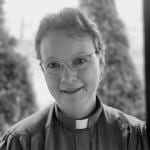
She does not speak for the ELCA; her opinions are her own. She is the author of Preaching in the Purple Zone: Ministry in the Red-Blue Divide (Rowman & Littlefield, 2019) and Creation-Crisis Preaching: Ecology, Theology, and the Pulpit (Chalice Press, 2015). She is the co-editor of Rooted and Rising: Voices of Courage in a Time of Climate Crisis (Rowman & Littlefield, 2019). Her latest book, co-written with Jerry Sumney is Apocalypse When?: A Guide to Interpreting and Preaching Apocalyptic Texts (Wipf & Stock, 2020).
Twitter: @LeahSchade
Facebook: https://www.facebook.com/LeahDSchade/



